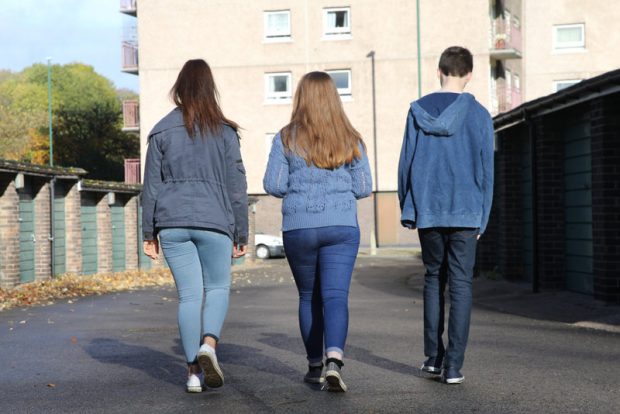
Our joint targeted area inspections (JTAIs) show that no agency can provide effective help and protection to children in a local area alone. This has to be a joint endeavour, with all the professionals that come into contact with children and families playing their part.
In this blog, I want to focus on the important role of adult mental health services as part of the multi-agency approach to helping and protecting children. JTAIs highlight the critical role of these services, but too often they do not play their full part.
‘What about the children?’
In 2013, we carried out a thematic inspection ‘What about the children?’ along with the Care Quality Commission. It explored how well adult mental health services and drug and alcohol services consider the impact of parental ill health on children. It also looked at how effectively adult and children’s services worked together to make sure that children affected by their parents’ or carers’ difficulties were supported and kept safe.
We found that the quality of joint working between children’s services and adult mental health services on children in need and child protection cases was inconsistent.
In some cases, adult mental health practitioners did not recognise or analyse the impact of an adult’s mental ill health on those children closest to them. This meant that risks were not recognised early enough.
The picture today
It’s been 6 years since we published that report. How much improvement have we seen since?
I do not believe for one minute that colleagues in adult mental health services are not interested in keeping children safe. But, unfortunately, JTAIs show that there has been little progress. We are still finding the same weaknesses in practice.
Our joint inspections show poor information sharing by adult mental health services and failures to spot risks to children. Referrals often do not happen when they should. There is still an overall lack of engagement in the child protection process from some adult mental health services.
Our neglect JTAI found that adult mental health services are not always focusing enough on the whole family. This is especially true regarding the impact of adult behaviours on children and also the risk of older children being neglected. Poor information sharing remains a problem, particularly around changing patterns of adult behaviour and their effect on children.
Similarly, our JTAI on domestic abuse shows that children are not always considered by the adult mental health professionals that are working with parents.
But this is a two-way process. Children’s services also do not always engage or share information with adult mental health services as well as they could do.
What needs to improve?
There are some obvious themes from joint inspections that highlight areas for improvement. These include:
- poor information sharing between adult mental health and children’s social services (we found cases where the adult mental health services did not ask about any children involved at all)
- adult mental health services not being sufficiently involved in multi-agency assessment and planning
- ineffective electronic recording systems, which do not always allow adult mental health services to prioritise children’s safety. For example, children’s names and dates of birth are often not readily accessible and are not used to alert professionals when a child may be at risk
All agencies need to focus on how to make the system work better for children and their families. We know the barriers, so let’s focus on removing them.
Professionals in local partnerships should understand the role that adult mental health services play when it comes to child protection. Equally, effective systems are essential if partners are to share information properly.
Think family, but think child too
As part of the solution, all professionals need to ‘think family’. That means assessing and responding to all the significant needs of and risks to everyone in that family. This works well in adult services in some areas, but not all.
But in ‘thinking family’, we should never forget to ‘think child’. All agencies need to consider the day-to-day experiences of children so that they can make the right response at the right time. If agencies do not, they risk focusing too heavily on adults’ needs.
A recent report from the police inspectorate (HMICFRS) – Policing and mental health: Picking up the pieces – highlights a holistic approach to adult mental health . As the report points out, any longer-term solution has to involve all public services if it is to provide those people with mental health issues with the support they deserve.
We have not been consistently effective in making improvements in this critical area. The time is ripe get this right.
Yvette Stanley is Ofsted's National Director for Social Care. Follow Yvette on Twitter. Keep up-to-date with social care news at Ofsted by signing up for email alerts. You can also follow Ofsted on Twitter.